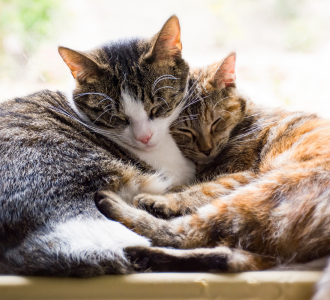
Taking Care of Your Elderly Pet: A Manual to Improve Lifespan
Taking Care of Your Elderly Pet: A Manual to Improve Lifespan
As our beloved pets age, they require extra care and attention to ensure they maintain a good quality of life. Whether you have a faithful dog, a graceful cat, or a charming rabbit, understanding their senior needs is essential for providing them with the best care possible. In this comprehensive guide, we’ll delve into the intricacies of senior pet care, covering everything from identifying when your pet enters their golden years to addressing common health issues and enhancing their overall well-being.
Recognizing Seniority:
Determining when your pet transitions into their senior years can vary depending on factors such as species, breed, and size. Dogs often reach their senior period between the ages of 7 and 10, whereas cats typically do so between the ages of 10 and 12. When given the right care, rabbits can live up to 8 or 12 years, reaching their senior phase at the age of 5 or 6. It’s important to keep in mind, though, that each pet may age differently depending on their genetics, lifestyle, and general health.
Identifying Common Health Concerns:
As they age, senior pets are more vulnerable to certain health issues. Arthritis and other joint issues are common in dogs, which can cause stiffness and make movement difficult. Senior dogs also frequently experience cancer, dental problems, and vision loss. Similar difficulties affect cats: renal disease, hyperthyroidism, and dental issues are major causes for concern. Rabbits can also develop age-related conditions such gastrointestinal stasis, arthritis, and dental difficulties.
Recognizing Advanced Age Signs:
You can see early indicators of old age in your pet by keeping an eye out for changes in their look, activity level, and behavior. Grey hair, weight fluctuations, decreased activity, more napping, and behavioral changes are all possible signs of aging dogs. Senior cats may also become less talkative, lose weight, change their litter box habits, groom less regularly, and display altered sleep patterns. Elderly rabbits may exhibit diminished energy, decreased appetite, altered litter box habits, changes in coat condition, and indications of eye and ear issues.
Enhancing Quality of Life:
Senior pets can live better lives despite these obstacles in a number of ways. Their general well-being can be greatly enhanced by feeding them a balanced diet that is catered to their individual needs, adding supplements for joint health and cognitive function, and involving them in mild exercise and mental stimulation. They can also live happy and healthy lives into old age if their living quarters are made pleasant with soft bedding, easy access to food and water, and routine veterinary checkups.
Caring for an Older Pet and Dealing with Aging:
Caring for an older pet requires patience, understanding, and a proactive approach to their health and well-being. Regular veterinary check-ups are essential for monitoring their health and addressing any emerging issues promptly. Adjusting their exercise routine to accommodate their age and physical abilities, providing comfortable accommodations, and ensuring they receive a nutritious diet are all crucial aspects of senior pet care. Additionally, offering plenty of love, attention, and affection can help alleviate any stress or anxiety they may experience as they age.
In conclusion, by being attentive to their changing needs and providing them with the care and support they require, you can ensure your senior pet enjoys a comfortable and fulfilling life in their later years. With proper nutrition, regular veterinary care, and plenty of love and affection, you can make the most of your time together and create cherished memories that will last a lifetime.
For all your questions on senior pet care or general questions on the health status of (elderly) Dog(s), Cat(s), Rabbit(s) or Rodent(s). Contact us to book an appointment via WhatsApp 0503440987, email frontdesk@abvc.ae or call 043408601.
Written by: Dr. Razan Hassan El Moussawi – Veterinarian
